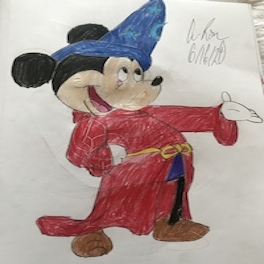We’ve Grown Accustomed to You, Nancy!
Nancy Ann Olson was born on July 14th, 1928 in Milwaukee, Wisconsin. Her father, Henry John Olson was a physician and her mother, Evelyn Bertha Olson, was educated at the University of Wisconsin. Nancy herself transferred from the University of Wisconsin to UCLA in California, where she was discovered performing on stage. She was put under contract to Paramount Pictures in 1948 at the age of 20, and made her feature film debut in Portrait of Jennie (1948). Two years after that film, she starred as Betty Schaefer in Sunset Boulevard (1950) which earned her an Academy Award Nomination for Best Supporting Actress. Her “Sunset Boulevard,” co-star, William Holden, who played her character’s love interest, Joe Gillis, also received a Best Actor Nomination for his performance as well. Unfortunately neither won. Despite that, Olson reunited with Holden on three other films, Union Station (1950), Submarine Command (1951), and Force of Arms (1951).
The same year she made “Sunset Boulevard,” Nancy Olson married Alan Jay Lerner of famous Broadway team “Lerner and Lowe,” on March 19th, 1950. They had two daughters together, Liza and Jennifer. During their marriage, Lerner began working with Lowe on the musical that would undoubtedly be one of their greatest collaborations ever, My Fair Lady, based on George Bernard Shaw’s play Pygmalion. While the show was in production, it came time for Lerner and Lowe to write the closing song for the show, a song that the male lead character, Professor Henry Higgins (played by Rex Harrison) would sing about his feelings for the female lead of Eliza Doolittle (played by a virtually unknown Julie Andrews). What made it complicated to compose the song was that it needed to be a love song, that wasn’t actually about love. At the end of the show, Higgins is in love with Eliza, but being the haughty, arrogant man that he is, he would never actually admit to being in love with her, so he expresses his feelings in another way. At one point, when Lerner was hard at work, he asked his wife to fetch him a cup of tea. When she came back with the tea, he said “Nancy, you know, you are quite a pretty girl.” She sarcastically said, “Thanks a lot.” He said “No, no, no-,…-I wake up with you every morning. I’m with you all day. All I’m trying to say is that I’ve grown accustomed to you. I’ve grown accustomed to your face.” At that point he had the name of the show’s closing song, “I’ve Grown Accustomed to Her Face.” “My Fair Lady,” premiered on Broadway at the Mark Hellinger Theater on March 15th, 1956, to rave reviews and won seven Tonys, including Best Musical. (“My Fair Lady,” was re-adapted as a movie in 1964 which won the Best Picture Oscar also.) Although “My Fair Lady,” was a huge hit, Nancy Olson and Alan Jay Lerner divorced in 1957.
Nancy Olson made her Disney debut as Nancy Furman, the maid in Pollyanna (1960). Next she starred as Betsy Carlisle in The Absent-Minded Professor (1961), the love interest-turned-wife of Philip Brainard, played by Fred MacMurray. She reprised that role for its sequel Son of Flubber (1963). In between both “Flubber,” films, Olson remarried, tying the knot with Capital Records producer Alan Livingston, who is best known for creating “Bozo the Clown,” and signing Frank Sinatra, along with several others to Capital Records. They had one son together, Christopher, and remained married until Livingston’s death in 2009. In 1973, she played Sue Baxter, the wife of Dean Jones’ Johnny Baxter in Snowball Express. She also made an uncredited cameo as a secretary for Ford in Flubber (1997), Disney’s remake of “The Absent-Minded Professor,” which starred Robin Williams.
After “Snowball Express,” and appearing in Universal’s Airport 1975 (1974), Olson virtually retired from acting, but still made occasional appearances on both film and television. She made appearances on Gunsmoke (1955-1975), and Love Story (1973-1974), and most recently acted in the film Dumbbells (2014), which was directed by her son, Christopher Livingston. She might be best remembered for her Disney roles, or as Betty in “Sunset Boulevard,” but she leaves a very unique legacy in entertainment being the inspiration for the song “I’ve Grown Accustomed to Her Face.”
